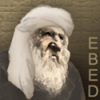Can you guys speak in a language that is understandable to us common everyday computer users who are not technicians?
That probably is a reference to what I wrote.
Morphology:This is the study of the units of the language, vocabulary, grammar, and syntax.
This is breaking a sentence or paragraph up into the various parts of speech, and the creating a diagram that shows how those parts of speech connect together.
AKA tag clouds. This is an image that has words on them. The size of the word relates to how common the word is in the collection.
This is the process of converting words to their root. For example, running, ran, run, runner all lemmatize to "run". This gets into the parts of speech, and how they relate to each other.
Search:- Extended Skip Length Search;
This is a search for a word, but instead of the letters being next to each other, there are two or more letters between the letters in the term that is searched for. (This is often called "Bible Code" search.)
- Proximity search that crosses chapter and verse boundaries;
Proximity search is searching for two or more words that are "near" each other. "Near" can mean within the same verse, or several verses apart.
This is a search for one or more terms, where the results can contain any term. For example a search for "Lord" or "God" will return verses that contain "Lord", verses that contain "God", but not verses that contain both terms.
- Boolean Search: Parenthesis deliminators;
This is a way to restrict the terms that are found.
Each letter has a numerical value. Gematria Analysis finds out what the numerical value of the word is, and relates that word to other words with the same numerical value. (The best known example is 666 as the number of the beast.)
Other Stuff:- Parshiyot / Lectionary support;
Parshiyot are the Torah readings that are done each Shabbos. This is a one year cycle. Lectionary readings are the readings from the Bible that are done each Sunday These can be a one year, two year, or three year cycle.
- On the fly Interlinear Bible construction;
This is a Bible that contains the text in the Biblical language, and a modern language, such as English. The English is a literal translation of the words in the Biblical language, and follows the word order and grammatical structure of the Biblical language.
- On the fly Reverse Interlinear Bible construction;
This is an Interlinear Bible that uses the English, or other modern language as the base text, and displays the Greek, Hebrew, Aramaic, etc as a literal translation of the English, using English word order. "On the fly" means that the content is generated when the user selects the option. The "resource" exists only when generated by the user. There is no resource that can be shared with other users.
jonathon























